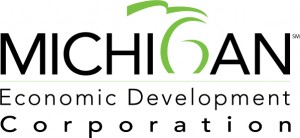 The Michigan Coastal Management Program will receive more than $2.5 million from the National Oceanic and Atmospheric Administration to address protection of shore lands and coastal ecosystems, public access and recreation, and coastal community development, Sens. Carl Levin and Debbie Stabenow announced Monday.
The Michigan Coastal Management Program will receive more than $2.5 million from the National Oceanic and Atmospheric Administration to address protection of shore lands and coastal ecosystems, public access and recreation, and coastal community development, Sens. Carl Levin and Debbie Stabenow announced Monday.
“The Coastal Zone Management Program has helped Michigan communities manage and protect the vast resources of the Great Lakes for decades,” said Sen. Levin, co-chair of the Senate Great Lakes Task Force. “It is important that we continue to support this effort, which helps preserve the world’s most valued source of freshwater.”
“Families across Michigan spend their summers on our state’s coasts, relaxing on the beach and hiking the dunes,” said Sen. Stabenow. “This support will help protect these natural treasures for generations to come.”
Michigan’s Department of Environmental Quality will administer the $2,512,000 federal grant, which will leverage nearly $2 million in state and local funds. The funds will assist the Michigan Coastal Management Program with its efforts to address coastal issues such as shore lands protection, submerged lands, protection of coastal ecosystems, public access and recreation, and coastal community development. Some projects include identifying specific climate change impacts to Great Lakes coastal wetlands; identifying appropriate measures and strategies for addressing these impacts; and training staff to incorporate climate change measures into wetland regulatory processes.
The grant will also support ongoing technical assistance and outreach to local communities; management of dunes and high risk erosion areas; and initiatives such as incorporating new methodologies of measuring bluff recession rates.
The National Coastal Zone Management Program administered by NOAA is a voluntary federal-state partnership that provides grants to states with approved coastal zone management plans for the preservation, protection, restoration, and enhancement of coastal zone areas, including those in the Great Lakes region.
Source: MEDC
Click here to be introduced to the MEDC



